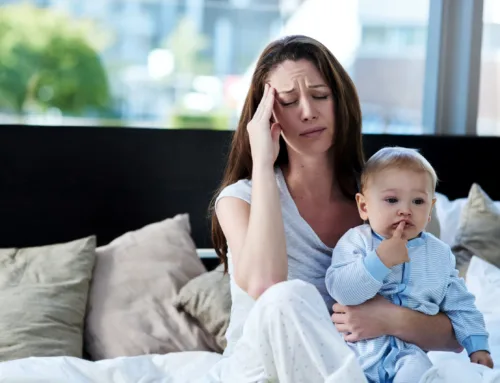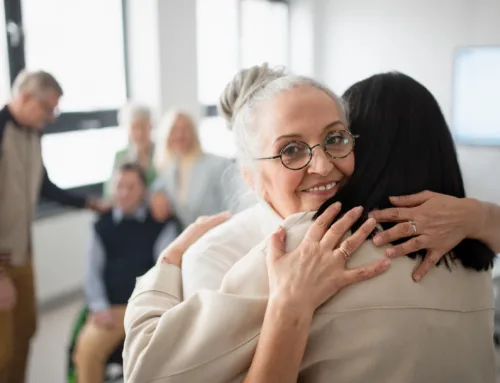How Violence Affects the Mental Health of Men and Women Differently
Many of us tend to think of violence as a terrible issue that only affects women, a problem that is primarily about men hurting women, or men attempting to exercise dominance over women. This isn’t entirely wrong, as countless statistics and police reports have demonstrated, but violence is not restricted to one gender.
Violence against each other is an enormous problem, one that continues to increase each year. It is not limited to physical or sexual violence either, it can also be emotional and psychological, all of which take a toll on the mental health of the person, regardless of gender.
In this article, we’re going to discuss how violence affects the mental health of men and women, and how women are impacted differently.
Understanding violence against men
Tragically, the vast majority of violence has not been formally reported, meaning the statistics we do have are limited; even more so limited are reports filed by men, particularly in regard to female-on-male violence.
While men are less likely to experience violence at some point in their lives as women, men are indeed harmed and abused, by women and other men alike. Statistically speaking, around 1-in-10 men will experience some form of sexual or physical violence in their lifetimes from an intimate partner.
Despite the fact so many men are targets of violence every year, most of them never actually report being attacked.
Impact of violence on a man’s mental health
Men who have been subjected to either physical or sexual violence often tend to suppress their trauma, which results in never filing a report for the abuse. This could be for a variety of reasons, some being stigmas and stereotypes surrounding conventional masculinity, as well as authorities doubting a woman’s ability to harm or abuse a man.
For other men, they may refuse to see themselves as a “victim” and feel denial around the event. Others might believe they deserve what happened to them; others that they do not have a right to seek help, or who believe they’re part of the problem if they defend themselves. These negative, self-sabotaging thought patterns can all contribute to the deterioration of a man’s mental health.
There are some men who believe the concept of mental health is girly or weak, something only for women who wear crystals and whose houses are full of plants; but mental health is not for women alone. A man’s mental health can be affected just as deeply as a woman’s, whether he chooses to acknowledge it or not.
Since so many men are unaware of or ignore the concept of mental health care, the lingering trauma of violence can take a devastating toll on the state of their mental health. Substance abuse is a common form of coping in men after experiencing physical or sexual violence, and studies have shown men can have an inclination towards suicide after these incidents.
Understanding violence against women
Violence against women has long been an epidemic in the world. Statistics show that globally, on average, 1-in-3 women have experienced some form of sexual of physical violence in their lifetimes, whether by a partner or otherwise.
Unfortunately, there is still a very large margin of women who never report being abused or attacked, leaving the statistics to tell only half of the picture, and inform us of only a small percentage of the women who have been subjected to violence. Given the stigmas that even women experience surrounding assault and abuse, the numbers are likely to be much higher.
Research has averaged that most violence occurs as actions of men towards women, whether they’re in a domestic relationship, connected as family, or if they’re completely unrelated. Sexual violence is the most common form of violence against women, with physical violence being a close second; numbers are highest between the ages of 15–24, with an influx towards women who are mothers.
Impact of violence on a woman’s mental health
Studies show that women experience a broader range of negative consequences after experiencing physical or sexual violence, ranging from mental to actual physical illnesses.
This could be due to the fact women are typically more aligned and in tune with their emotions, therefore things affect them on a deeper level than the average man; and emotions and mental health do indeed play a role in the state of our physical health.
Some examples of negative consequences include:
- Physical illnesses or ailments, whether it be chronic physical pain or developing a disease
- Heightened anxiety, panic attacks or post-traumatic stress disorder (PTSD) especially around men
- Major depressive disorder that escalates to suicidal thoughts or attempts
- Death, as women are the most common homicide victims, as well as more likely to be killed by an intimate partner than men
Violence against women is an international problem, one that affects women of all ages, color and religion; one that isn’t improving. But increased involvement from counselors, mental health professionals, even friends and family, can be the first step to remedying this international crisis.
Reach out for support
We do not perpetuate stigmas around abuse, violence, or mental health here at Tapestry. Our compassionate staff is dedicated to working closely with you to tailor a highly personalized plan for your healing, a journey we are eager to help you along.
To get started, send us a message or give our office a call today at 828-490-4032.






